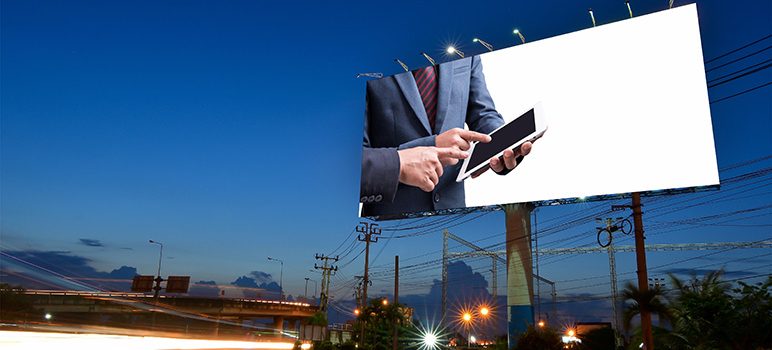Billboards. We've been talking about them ever since the San Jose City Council rescinded a ban on new billboards that had been in place for more than thirty three years. Originally the ban was enacted based on municipal management best practices which suggested that beautifying San Jose would be good for the City and good for economic development. We still think that is true today, and the City's own survey concluded that there is overwhelming public opposition to new billboards.
But here we want you to think more broadly and consider billboards from the perspective of how the City works and how our elected and appointed officials do their jobs. In other words, the billboard issue is about a lot more than billboards!
First, let's think about special interests vs. public interest. Council and staff are constantly targeted by lobbyists and special interests. And often it's these hired guns, whose full time job is to convince the officials they target of the correctness of their position, that have influence with city decision makers the general public can only wish to wield.
In the case of billboards, lobbyists met with Council and City staff more than 60 times prior to the Council in 2018, without adequate public outreach, quietly voting to rescind the billboard ban. Believe it or not, transforming billboard industry talking points into a welcome mat for new billboards was on the City Council’s annual top five priority list for several years. Though they don’t often admit to it now, the Council originally intended to allow as many as 100 digital billboards along freeways throughout San Jose. All of this should prompt voters to wonder are their representatives public servants or shills for voracious and predatory special interests - and that applies to any number of issues.
Second, let’s consider public engagement. Too often issues gain so much momentum that in City offices, industry-advocated notions become accepted and unchallengeable realities. As special interests seduce gullible Council and especially high level City managers, by the time the public is aware of an issue it becomes difficult, if not impossible, to have any meaningful impact on City decision makers.
We've learned, that the City often works with a deliberate lack of transparency and disregard for the City's own rules. And if we see this with the billboard issue, the question is how many other issues are also buried from public view and ignored by a City Council oversight function that is more imaginary than real?
For example, the plan for the airport billboards was not disclosed even to the Airport Commission or included in a high-priced environmental study that covered every conceivable development at SJC but conveniently omitted an examination of the proposed billboards. When the Commission finally became aware of the airport billboards, not once but twice, it recommended that the City Council refuse to allow them. The Commission issued a detailed list of concerns foremost being that the billboards were the result of a backroom deal done without competitive bidding and therefore a litigation risk ticking time bomb. Sure enough, there is now a lawsuit by Outfront Media contending that the City did not follow its own rules regarding competitive bidding.
The night the Council voted to approve the now infamous airport billboards City Council members downright ignored the Commission. They did not even enter the Commission’s report into the record. David Cohen, the Council’s own liaison with the Commission, did not even thank the Commission’s volunteer members for their public spirited dedication to informing the pubic about the billboard fiasco to a far greater degree than did the City Council.
Why would anyone serve on a city commission if their work is a waste of time, their concerns not taken into account? How can the Council be so disrespectful? And, could the City have avoided costly litigation? These are question that stem from the billboard debacle but apply across the board to the range of projects undertaken by the City and the hundreds of millions of dollars allocated for those projects’ implementation supposedly with fiduciary oversight by the City Council.
The billboard plan for downtown is also shrouded in secrecy despite this being the public's business and a project that would alter public buildings with commercial advertising on large digital screens. For well over a year, the City’s Office of Economic Development has refused to respond to repeated Public Record Act requests for relevant documents which would reveal the particulars of which downtown buildings are to be defaced by what size and shape of commercial advertising digital billboards. With no information disclosed to the public, the decision to erect such advertising on downtown buildings moves ahead with no opportunity for public input prior to the resulting plans being dumped on the City Council’s agenda for rubber stamp approval with as little notice as the proponents of this scheme are able to get away with.
The question for voters in the upcoming election is whether their chosen candidates have the fortitude and character to represent the public interest and whether they are willing to go further to revamp our City government to be more accountable, transparent, and a lot smarter.
As far as billboards specifically, the answer is to elect a Council which will reinstate the ban on new billboards and prevent the conversion of existing static billboards into digitals. The City got itself into the billboard business by opening a door to the billboard lobby that should have never been opened and it's been a giant and costly distraction consuming staff resources and taxpayer money. It is all easily repairable with a Council vote that both upholds the public interest and the public’s values.
Jason Hemp, Les Levitt and John Miller are co-founders of No Digital Billboards in San Jose.


This entire article could be replaced with 2 words: political contributions. That’s all this billboard BS is about.